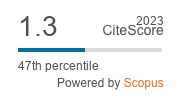Labour Taxation in Poland Compared to the Other OECD Countries
DOI:
https://doi.org/10.2478/cer-2014-0022Keywords:
tax, labour taxation, tax wedge, employee, employer, labour costs, earningsAbstract
The aim of the study is to identify the level and diversity of labour taxation, expressed by the so-called tax wedge, in Poland compared to the other OECD countries. The identification is based on an analysis of statistical data collected in the OECD database for the years 2000-2012. The study interprets key terms such as labour taxation, tax wedge, and non-wage costs of labour. The further section synthetically discusses theoretical findings and the results of empirical research concerning effects of labour taxation on the functioning of the labour market and, in particular, its impact on employment and unemployment. The author’s own research includes a comparative analysis of tax wedge sizes in different household types in Poland and the other OECD countries in the years 2000-2012. The major conclusion of the analysis is that labour taxation in Poland insufficiently takes into account the financial situation of low-earning individuals and those providing for children (i.e. children within households). The results of the conducted research form the basis for drawing synthetic conclusions and making recommendations for Poland. The main suggestion is that a selective reduction in the non-wage costs of labour of low-earning individuals and those burdened with family responsibilities should be considered.
Downloads
References
Bartosik K. (2012), Popytowe i podażowe uwarunkowania polskiego bezrobocia [Demand- and supply-side determinants of unemployment in Poland], Gospodarka Narodowa [National Economy], Szkoła Główna Handlowa [Warsaw School of Economics], Warsaw, 11-12
Google Scholar
Boeri T., Ours J. S. van (2011), Ekonomia niedoskonałych rynków pracy [The economics of imperfect labour markets], Oficyna a Wolters Kluwer business, Warsaw
Google Scholar
Bukowski M. (ed.) (2005), Zatrudnienie w Polsce 2005 [Employment in Poland 2005], Ministerstwo Gospodarki i Pracy, Departament Analiz i Prognoz Ekonomicznych [Ministry of Economy and Labour, Department of Economic Analyses and Forecasts], Warsaw
Google Scholar
Dolenc P., Laporšek S. (2010), Tax wedge on labour and its effect on employment growth in the European Union, Prague Economic Papers, 4
Google Scholar
Dolenc P., Vodopivec M. (2005), Tax wedge on labour: Slovenia vs. EU and OECD countries [in:] Managing the process of globalisation in new and upcoming EU members, proceedings of the 6th International Conference of the Faculty of Management Koper Congress Centre Bernardin, Slovenia, 24–26 November 2005
Google Scholar
Glossary (2014), Glossary of statistical terms, OECD, http://stats.oecd.org/glossary/
Google Scholar
Góra M., Radziwiłł A., Sowa A., Walewski M. (2006), Tax wedge and skills: case of Poland in the international perspective, CASE Center for Social and Economic Research, 64, Warsaw
Google Scholar
Koskela E. (2002), Labour taxation and employment in trade union models: a partial survey [in:] Seija Ilmakunnas, Erkki Koskela (eds.) Towards higher employment: the role of labour market institutions, Government Institute for Economic Research, Vatt Publications, Helsinki
Google Scholar
Krajewska A. (2007), Koszty i produktywność pracy w Polsce w kontekście integracji z Unią Europejską [Costs and productivity of labour in Poland in the context of integration with the European Union], Wydawnictwo Uniwersytetu Łódzkiego [University of Lodz Publishing House], Lodz
Google Scholar
Nadolny Ł. (2009), Klin podatkowy w Polsce na tle krajów Unii Europejskiej [Tax wedge in Poland compared to European Union countries], Polityka Społeczna, Instytut Pracy i Spraw Socjalnych [Social Policy, Institute of Labour and Social Studies], Warsaw, 5-6
Google Scholar
Nickel S., Layard R. (1999), Labour market institutions and economic performance [in:] Orley Clark Ashenfelter, David Card (eds.) Handbook of labour economics, Volume 3, Elsevier, Amsterdam
Google Scholar
Polarczyk K. (2007), Klin podatkowy a bezrobocie [The tax wedge and unemployment], Biuro Analiz Sejmowych INFOS [Sejm Bureau of Research INFOS], 17
Google Scholar
Rękas M. (2012), Ulgi prorodzinne jako element polityki rodzinnej w wybranych krajach UE [Family allowances as an element of pro-family policy in selected EU countries] [in:] Jerzy Sokołowski, Magdalena Rękas, Grażyna Węgrzyn (eds.) Ekonomia [Economics], Research Papers of Wroclaw University of Economics, Wrocław
Google Scholar
Ślesicka A. (2011), Stosowanie ulg i zwolnień w podatku dochodowym od osób fizycznych w państwach UE [Application of personal income tax allowances and exemptions in EU countries], Ekonomia [Economics], Wydział Nauk Ekonomicznych Uniwersytetu Warszawskiego [Faculty of Economic Sciences, University of Warsaw], Warsaw, 26
Google Scholar
Wojciechowski W. (2008), Skąd się bierze bezrobocie? [What causes unemployment?], Zeszyty Forum Obywatelskiego Rozwoju [Issues of the Civil Development Forum], Issue 2
Google Scholar
Downloads
Published
How to Cite
Issue
Section
License

This work is licensed under a Creative Commons Attribution-NonCommercial-NoDerivatives 4.0 International License.











